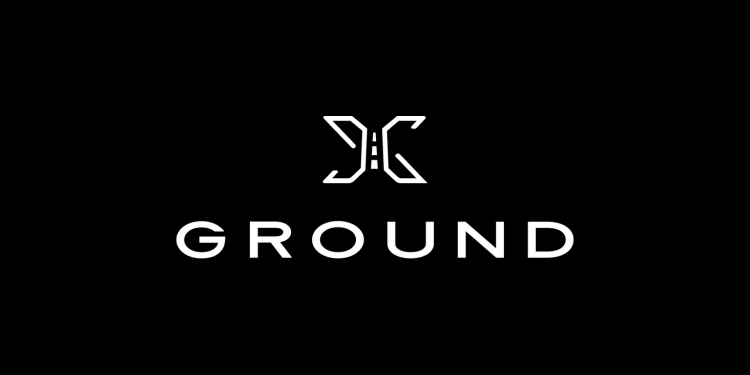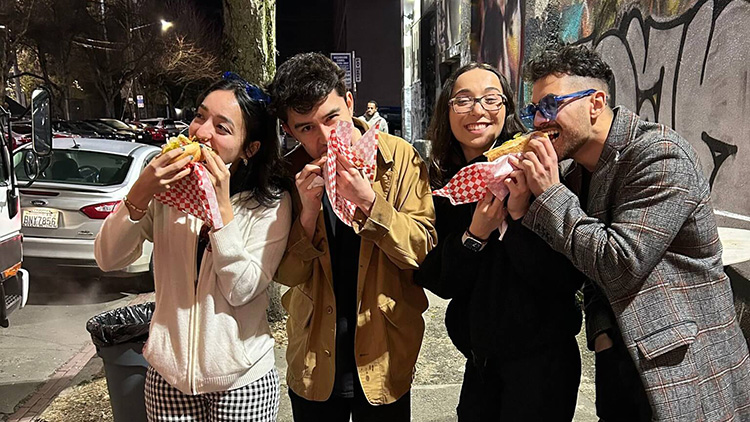/0x372:3000x2328/prod01/channel_34/media/seattle-university/supplier-diversity/images/Young-barista-co-founders-3K-ceiling.jpg)
Supplier Diversification Program
Seattle University's Initiative Committed to a More Sustainable and Inclusive Economy
Aligning University Spending with our Values and Mission
Launched in 2021 through a $750,000 grant from the JP Morgan Chase Foundation, Seattle University's Supplier Diversification Program was created to guide university-wide efforts in increasing procurement spending with diverse local businesses.
The program aims to build the strength and breadth of diverse local businesses, increase equity and create a more resilient and integrated community. The initiative is a collaborative effort between the Albers School of Business and Economics, the Sundborg Center for Community Engagement (CCE), the Office of Diversity and Inclusion (ODI), and Seattle University's Procurement Office.

Goals and Spending
/0x156:1250x1406/prod01/channel_34/media/seattle-university/supplier-diversity/images/Mediums-Collective.jpeg)
Supplier Diversification Program Goals
- Create a new diverse supplier procurement model for Seattle University
- Increase the capacity of local BIPOC (Black, indigenous, and other people of color) small business owners to contract with large local purchasers
- Build an ecosystem of comprehensive small business support services
- Create a pipeline of inclusive procurement purchasing
- Increase the number of Diverse Business Entities(DBE) providing goods and services to Seattle University
- Disseminate lessons learned
Achieving Goals
To achieve its goals of increasing procurement spending with DBEs and annually doubling the number of DBE, BIPOC and Black vendors contracted, Seattle University plans to:
- Identify DBEs and designate them in the internal procurement system; work with the Resource Amplification & Management Program (RAMP-Up) to bring more DBE suppliers to the university; include DBEs in all RFPs over $50,000; track spending with DBEs; and regularly share DBE spending percentages.
- Develop a supplier diversity model, which includes analyzing current vendors and spending, developing procedures and a procurement system that facilitates diverse purchasing, and sharing best practices with like-minded institutions.
- Pursue BIPOC community engagement by utilizing and strengthening the university's BIPOC network to assist with the procurement readiness pilot, reaching out to local BIPOC, especially Black community leaders, to initiate networking and hiring consultants from the community to complement internal leadership.
Supplier Diversity Corner
Supplier Highlight: Noir Lux Candle Bar Co.

Founded by double SU alumna Colina Bruce, Noir Lux Candle Bar Co. is located in Seattle’s Belltown neighborhood.
As shared in a 2023 Newsroom article, Colina (‘07, ‘15 MA) was serving as director of educational partnerships for the Seattle University Youth Initiative and teaching as an adjunct professor in the Non-Profit Leadership program when she started dabbling in candle-making as a side hustle. In time, she decided to make it a full-time job and Noir Lux was officially launched in February 2022.
Today Noir Lux is a thriving Black-owned, woman-owned small business, and Bruce and her company have been featured in several stories, including on NPR and KING 5 as well as by Oprah Daily and Seattle Met.
In addition to shipping handcrafted candles to customers all across the country, Noir Lux’s candle bar allows guests to choose their vessels and fragrances to curate their own custom candles.
Colina remains connected to her alma mater in a number of ways, including the RAMP-Up initiative. Noir Lux was a featured vendor in the successful SHOP SEATTLEU vendor fair in February 2024, showcasing custom SU scents.
Coming Soon
Keep an eye out for Noir Lux products at our Campus Store this spring and summer (2025).
Noir Lux is in the process of becoming one of the university’s licensed vendors, which means you will soon be able to custom order their products with SU logos.
Learn more about Noir Lux.
Supplier Highlight: GroundX (From Athletics)

GroundX, a small minority-owned business based in Seattle, has experienced rapid success since opening in 2023 providing charter bus services to collegiate sports and educational programs. They provide trusted bus companies across the country with various motorcoach configurations to match the needs of our clients.
The owner, Marcus Kelly, started GroundX as a complementary charter service alongside AviationX which offers air charter services. With the growing demand for cost-effective charter bus options, Marcus capitalized on this opportunity to expand his business portfolio.
Marcus and his wife Anne, live in Kenmore where they enjoy traveling, golfing, attending live music and exercising on the Burke Gilman trail.
Learn more about GroundX.
Supplier Highlight: Dirty Dog

Dirty Dog, a legendary hot dog cart in Capitol Hill, is owned by Binyam Wolde, who immigrated from Ethiopia at 15 and started his business in 2010. He offers beef, vegetarian, spicy or Polish dogs with a choice of fixin's that hit the spot for late-night revelers.
Apart from serving Capitol Hill diners, Wolde also does concerts, sports events, private catering, and corporate functions. His food has been featured by publications such as Eater Seattle and the Seattle Times. Wolde is more than happy to elaborate on what a Seattle-style hot dog is.
"Simply put, a Seattle-style hot dog includes onions and cream cheese," he said in a blog post. "While many people on the East Coast use sauerkraut and mustard, Seattle gets its signature taste from onions and cream cheese. Yes, it might sound bizarre, but you will not know what we are talking about unless you try it."
Dirty Dog is a participating business in the RAMP-Up of the Albers School of Business and Economics. RAMP-Up offers business coaching, resource connections, business planning, project management assistance, and other technical support to underserved local businesses in Seattle's Central Area and surrounding neighborhoods.
Share Your Good News Story!
If you’ve had a great encounter with a vendor or a memorable moment that stood out, please share your story and photos. Here are some options to help inspire your submission: Unique offerings, customer service experience and future recommendations.
We want to hear your positive experiences!
Contact
Questions? Recommend a diverse vendor for Seattle University.
Supplier Diversity